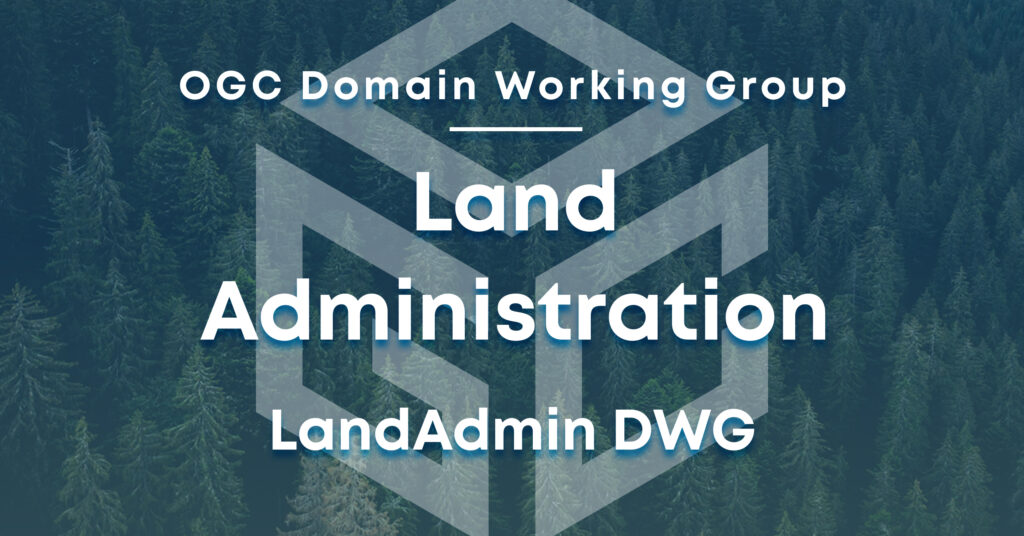OGC announces Christy Monaco as new Chief Operating Officer
As OGC’s COO, Christy will use her experience with federal agencies, partnership-building, event management, and member success to help grow and shape the Consortium.

The Land Administration DWG outlines activities related to land administration. Worldwide, effective, and efficient land administration is an ongoing concern, inhibiting economic growth and property tenure.
The DWG scope centers on the critical evaluation of current land administration systems, the formulation of best practices to expedite and economize standards-based land administration for nations, and the exploration of new information resources and technologies to fast-track the enhancement of land administration capabilities. Furthermore, the DWG is proactive in initiating and advocating for interoperability assessments, testbeds, pilots, and experiments that bring together stakeholders to ensure these best practices are not only theoretically sound but also practically vetted for guiding the deployment of sustainable and interoperable land administration infrastructures globally.
Only 40 countries around the world have mature land information systems. Of the developing nations, most have 10% or less of their land in formal systems. In many nations, land administration systems are either non-existent or manual paper-based or semi-automated systems subject to limited public access. All of these approaches are at significant risk of data loss and failure due to disasters and lack of interoperability. The charter members of this DWG seek to identify enabling standards and best practices to guide countries in a programmatic way to establish more cost effective, efficient and interoperable land administration capability, to upgrade current manual to semi-automated processes, and to suggest solutions that are more automated and flexible to new data sources technologies. These challenges are faced today in countries considered as “developing” as well as those designated as Official Development Assistance (ODA) recipients.
The Land Administration Domain Working Group (LandAdmin DWG) is committed to a series of foundational activities aimed at enhancing global land administration systems, with a particular focus on nations facing substantial challenges in this sector. Initial efforts include a thorough examination of the existing landscape and future needs of land administration systems, such as the integration of 3D and 2D Cadastres, refinement of legal frameworks, valuation and taxation considerations, and the incorporation of marine Cadastres. The group will identify and propagate best practices in open standards, drawing on the work of OGC, ISO, and other bodies, to tackle key data integration and management challenges. Outreach materials will be developed to educate and align stakeholders on the use of open geospatial standards. Furthermore, an analytical framework will be established to address land administration issues, referencing and cataloging existing vocabularies like the Cadastre and Land Administration Thesaurus (CaLAThe). The DWG will contribute to OGC standards development, coordinate with existing OGC groups, communicate with standard-development organizations regarding non-OGC standards, and recommend OGC interoperability initiatives. These initiatives will demonstrate the value of open standards, inform procurement processes, and promote the scaling of land administration capabilities. The overarching goal is to harmonize the geospatial description of land records and improve the quality and consistency of these records, thereby providing a common vocabulary for land administration databases in line with their intended uses.
The LandAdmin DWG will coordinate with other OGC Working Groups and external Standards Development Organizations (SDOs) including ISO.
Working Group Chairs: Eva-Maria Unger (Kadaster International), Peter van Oosterom (Delft University of Technology)
Receive the latest news on OGC.
© 2024 Open Geospatial Consortium. All Rights Reserved.